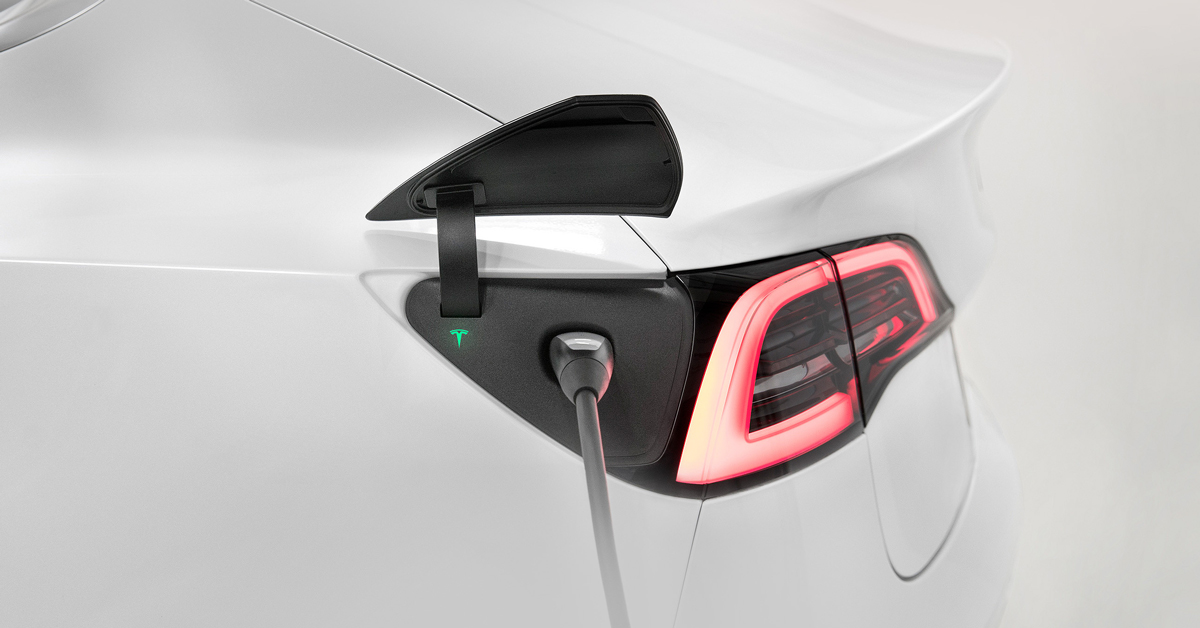
There are many types and models of electric cars. These include battery powered, fuel cell and hybrid electric vehicles. There are several differences between these types. First, the battery powered electric car works on the principle to store electrical energy. These vehicles have electric motors, an electric battery, and an Electric Power Control Unit.
These batteries are the most used in electric vehicles. These batteries can provide long-range driving capabilities. They can be expensive. Depending on how they are used, the size and capacity of the batteries can affect their performance and lifespan. The general rule of thumb is that the larger the battery the better it delivers energy.
Another important feature of an electric vehicle is regenerative braking. This system captures the kinetic energy produced from the engine during deceleration and returns it to the battery. Regenerative braking can be used to recharge a conventional hybrid. These systems allow the driver to save a lot of energy. The Department of Energy estimates that an electric car can recover as much as 34% of the energy that is lost while driving.

Another major difference between electric and fuel cell cars is that electric cars only use the electricity stored in the battery to power their wheels. However, fuel cell cars are powered by hydrogen fuel tanks. They have the best benefits, including lower fuel bills. They are limited to certain markets.
An on-board charger stores electricity in electric cars. It can either be plugged into an outlet standard or used as a self-charging system. The self-charging system uses an ultra capacitor module to deliver a controlled charging current.
A dual polar magnetic motor generator generates fast charges. The ultra-capacitors module stores the voltage and discharges it to the lithium battery. This ensures that your batteries never go to sleep and are never back-charged. The dual polar magnet motor also increases torque.
Ultra-capacitors modules allow an electric vehicle to have more capacity when its lithium batteries run low. After the batteries have been discharging, the voltage stored in them allows the dual polar motor generator to operate. This is the most popular option.

There are many other types of battery on the market but the most widely-used and well-known is the Lithium Ion battery. This battery is capable of lasting the entire life cycle of the vehicle. The 64 kWh battery of the Kia Soul Booster EV lasts up to 386 kilometers.
It is important to have an understanding of all the components before you buy an electric vehicle. This will enable you to choose the right motor and battery for your electric car. This can be complicated, so get professional advice. It is important to decide how much electricity you want for your electric car. This will affect its performance.
FAQ
What can I do to fix my car as an hobby?
If you are interested in cars, why not take it on as a hobby? You could repair them yourself, buy parts for them and sell them. Or just have fun with them. If you are looking for something new, this would be a great hobby.
It's difficult to make this a fulltime job. It takes dedication and hardwork. And you'll need to invest a lot of money too.
You might not have a compelling reason to get involved in the car industry.
How long does it take you to become a great mechanic?
A mechanic is only an expert if they have years of experience. You can learn the most effective way to fix cars by learning from a professional mechanic.
You'll have to spend time at a garage learning all you can about cars and mechanics. You will need to be familiar with mechanical engineering books about mechanics, car design, and other topics.
Furthermore, you'll need to enroll in auto school.
The most important thing to do is start early. Don't wait until you're older to begin studying automotive technology. If you want to qualify as a mechanic, get started now!
What is the best way to learn about car mechanics
For an auto mechanic job, you don’t have to be an expert in cars. It's enough to know how to fix things. This is why most people get started with simple jobs such as changing brake pads or tires. Then they move on to more difficult repairs.
You'll need to know how to read diagrams, understand written instructions and follow basic rules of good practice. It is also important to know how to determine if parts are damaged or need to be replaced.
You should not attempt to fix vehicles without proper training and guidance. This is especially true if you deal with expensive components such as engines or transmissions.
Even though you don't need to be an expert on cars, it is important to understand the fundamentals of mechanical engineering and physical physics. This includes understanding the mechanics of how engines and brakes work.
You should also be ready to handle all kinds of situations. You might be required to work on a vehicle that was involved in an accident. You'll also need experience dealing with breakdowns and accidents.
Finally, you need to be willing and able to quickly learn new skills. As well as being able to diagnose problems, you'll need to be able to perform simple maintenance tasks such as tightening nuts and bolts.
Is it hard to be a mechanic apprentice?
It's not easy, but you learn fast, and there are many opportunities for advancement.
You will need to be patient and persevering. You will also need to be able fix cars, trucks and motorcycles.
Customers and family members can put a lot pressure on you. They want you to succeed. You shouldn't feel pressured to make decisions that you don't like.
This is a career that you might enjoy if you are passionate about fixing cars. You can make a decent living and build your business.
But you may prefer another path. If this is the case, you might want to become a technician.
This requires you to use your technical expertise in support of other workers. Technicians could benefit from your technical expertise to solve problems or teach new techniques.
You can also become a service advisor. When customers bring their cars into a garage, they will receive advice and assistance.
Your choice is based on what you choose to do. There are many options to choose from, and it is up to you which one suits you the best.
Statistics
- There were 749,900 jobs available for automotive service technicians and mechanics in 2016, which is expected to grow by six percent through 2026. (jobhero.com)
- 52% of Mechanics in the United States think their salaries are enough for the cost of living in their area. (indeed.com)
- The U.S. Bureau of Labor Statistics (BLS) reports that the job outlook for automotive service technicians and mechanics is expected to decline by 4% from 2019 to 2029. (indeed.com)
External Links
How To
How to become an automotive technician
An automotive technician provides repair services and maintenance to vehicles. He/she works in car dealerships as well as auto shops, garages, and service centers. He/she assists customers in fixing their cars, trucks or motorcycles. An automotive technician must be able to diagnose problems and make repairs quickly, safely, accurately, and efficiently.
To become an automotive technician, a person must first earn an associate's degree from a vocational college. After completing this program the student must pass the National Institute for Automotive Service Excellence exam (ASE). ASE stands in for American Society of Mechanical Engineers. There are two sections to the ASE certification test. The first section tests the ability to use mechanical knowledge. The second section tests the ability to apply practical skills. To pass the test, you will need to visit an authorized testing location. These locations can be found online or at your local auto dealer.
Before becoming an automotive technician, a candidate must pass the test. This process can vary depending on where the applicant lives. Some states require candidates to complete a training program, while others let them study on their own. Some states allow technicians to become licensed right away after receiving their license. While others wait until they have had at least six years of experience as an automotive technician.
An applicant should apply to a local auto shop in order to start their career as an automotive technician. Most employees who are hired start as apprentices. Apprenticeships last for three years. During this time, a student learns how to perform basic repairs, such as changing oil, adjusting brakes, replacing tires, cleaning spark plugs, inspecting engine compartments, and performing routine maintenance. Advanced repairs can be done by some students, including replacing shocks, installing air filters and repairing engines. Most schools offer classes during regular business hours. However, there are some schools that offer evening classes for those who need them.
Once a student finishes his/her apprenticeship, it is possible to become a Journeyman. Journeymen generally spend four- to five decades learning how to fix major systems like transmissions. You will also learn how to repair complicated electrical components, as well as how to remanufacture engines and rebuild transmissions. Because they have the experience and knowledge to do the job right, employers love hiring journeymen.
After passing the exams, candidates may be eligible to open their own shop if they pass all requirements. According to Bureau of Labor Statistics, there were almost 1.7 million available jobs in the automotive mechanic field in 2010. This number is expected to increase by 18% between 2009 and 2020. When a candidate plans to open his/her own shop he/she should be ready to invest thousands of dollars in equipment.
Many factors affect the automotive technician's salary, including location, education, experience, and employer type. On average, a jobless person could expect to earn $20,000 annually. A high school diploma is all that's required to earn approximately $21,000 annually. Earnings for those with an associate's diploma are approximately $24,000/year. Technicians with a bachelor’s degree made about $27,000 annually. And those with master's degrees made around $32,000 per year. Salary increases can be common. A professional who earns less that $30,000 today could reasonably expect a $40,000 increase in the next few decades.